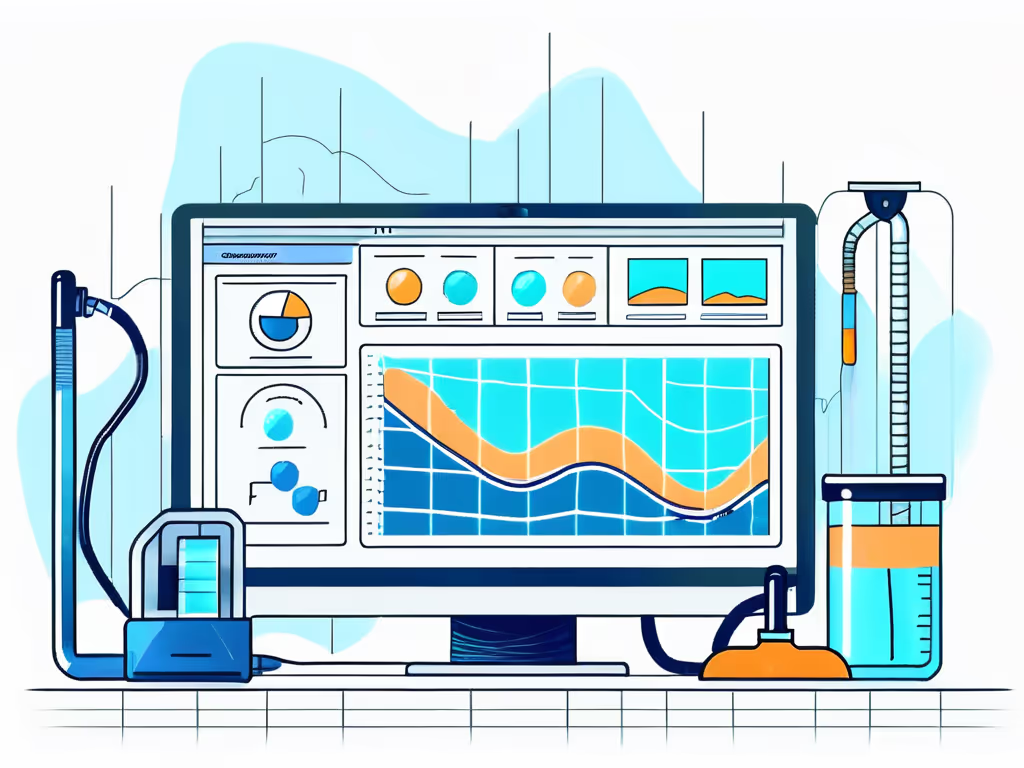How to Improve Pool Service Operations: Top Strategies for Success
Running a successful pool service business requires more than just technical know-how—it demands a strategic approach to operations, maintenance, customer relations, and adapting to industry trends. As the pool service industry evolves with new technology and heightened customer expectations, companies must innovate and optimize to stay competitive and profitable.
This comprehensive guide explores actionable strategies to improve pool service operations, helping businesses enhance efficiency, boost customer satisfaction, and drive sustainable growth in 2025 and beyond.
Prioritize Preventive Maintenance for Long-Term Success
Preventive maintenance is the cornerstone of effective pool service operations. Regular inspections and routine upkeep not only prevent costly repairs but also extend the lifespan of pool equipment and ensure a safe swimming environment for clients.

Key focus areas include:
Water Chemistry Management
Maintaining balanced water chemistry is essential to prevent algae growth, equipment corrosion, and skin irritation. Regularly monitoring and adjusting pH levels, alkalinity, and calcium hardness keeps pools crystal clear and healthy. Leveraging digital water testing kits or IoT-enabled sensors can provide real-time data, allowing technicians to make precise adjustments quickly. Additionally, understanding the seasonal variations in water chemistry can help technicians anticipate changes and act proactively. For instance, during the summer months, increased usage and higher temperatures can lead to more rapid chemical imbalances, necessitating more frequent testing and adjustments.
Filtration System Care
Filters play a critical role in removing debris and contaminants. Cleaning or replacing filters on a scheduled basis ensures optimal filtration performance and reduces strain on pumps. Neglecting this step often leads to inefficient circulation and increased energy consumption. Moreover, implementing a backwashing schedule can enhance filter efficiency, allowing for better water clarity and reduced chemical usage. Educating clients about the importance of filter maintenance can also foster a deeper appreciation for the service and encourage them to participate in the upkeep process.
Skimmers and Pumps Maintenance
Skimmers and pumps should be kept free of debris buildup to maintain efficient water flow. Regular cleaning and inspection prevent blockages that could cause equipment failure or costly downtime. It's also beneficial to check the pump's seals and gaskets for wear and tear, as these components can lead to leaks if not addressed. Furthermore, educating clients on the signs of pump inefficiency, such as unusual noises or decreased water flow, empowers them to report issues early, ensuring prompt attention and repairs.
Inspect Pool Surfaces and Equipment
Routine checks for cracks, stains, or wear on pool surfaces and equipment help maintain a pristine appearance and prevent minor issues from escalating. Early detection allows for timely repairs, preserving the pool’s aesthetic and functional integrity. In addition to visual inspections, utilizing specialized tools like moisture meters can provide insights into underlying issues that may not be immediately visible, such as water intrusion in pool decks. This proactive approach not only enhances the pool's longevity but also reassures clients that their investment is being meticulously cared for, fostering trust and satisfaction in the service provided.
Leverage Smart Pool Technology to Streamline Operations
Incorporating technology into pool service operations can significantly enhance efficiency and service quality. Smart pool solutions reduce manual labor, improve monitoring accuracy, and offer clients modern conveniences. As the demand for seamless service continues to rise, businesses that embrace these innovations position themselves as leaders in the competitive pool maintenance industry.

Automated Pool Cleaners
Robotic pool cleaners have transformed the cleaning process by delivering thorough, consistent results with minimal human intervention. These devices can operate on schedules, reducing labor costs and freeing technicians to focus on more complex tasks. Additionally, many advanced models are equipped with smart navigation systems that allow them to map the pool's layout, ensuring no area is overlooked. This level of efficiency not only enhances the cleanliness of the pool but also extends the lifespan of the pool's surfaces and equipment, ultimately saving clients money in the long run.
Remote Monitoring Systems
IoT-enabled sensors allow real-time tracking of water quality, temperature, and equipment performance. This proactive approach enables technicians to identify and address issues before they become major problems, enhancing reliability and customer trust. Furthermore, these systems can send alerts directly to both service providers and clients, ensuring that everyone is informed about the pool's condition. This transparency fosters a stronger relationship between service providers and customers, as clients appreciate being kept in the loop about their pool's health and maintenance needs.
Energy-Efficient Equipment
Offering clients energy-saving options such as variable-speed pumps and LED lighting not only reduces operational costs but also appeals to environmentally conscious customers. Promoting these upgrades can differentiate your service and add value. Furthermore, many energy-efficient products come with advanced features, such as smart timers and remote control capabilities, allowing clients to manage their pool settings from their smartphones. This level of control not only enhances user experience but also encourages clients to take an active role in their pool maintenance, leading to better overall care and satisfaction.
Streamline Operational Processes for Consistency and Efficiency
Standardizing workflows and leveraging management tools are essential for scaling pool service businesses and maintaining high service quality. By implementing these strategies, businesses can not only enhance their operational efficiency but also foster a culture of accountability and professionalism among team members.
Develop Documented Systems and Playbooks
Creating detailed playbooks for routine tasks, safety protocols, and customer interactions ensures that every team member follows best practices. This consistency improves service reliability and simplifies onboarding of new employees. Additionally, having a centralized repository of knowledge allows for continuous improvement, as teams can regularly update playbooks based on feedback and new industry standards, ensuring that the business remains competitive and compliant with regulations.
Utilize Task Management Platforms
Platforms like Notion or Monday.com help organize schedules, assign tasks, and track progress. These tools improve communication within teams and reduce the chances of missed appointments or overlooked maintenance steps. Moreover, the ability to integrate these platforms with other software, such as customer relationship management (CRM) systems, allows for a seamless flow of information, enabling teams to access client histories and preferences at their fingertips, which can lead to more personalized and effective service.
Implement Work Order Templates
Using standardized work order templates within service management software streamlines job documentation and billing. It also provides clients with clear, professional reports that enhance transparency and trust. Furthermore, these templates can be customized to include specific client requests or unique service requirements, ensuring that all aspects of the job are documented accurately. This not only aids in maintaining high service standards but also serves as a valuable resource for analyzing service trends and identifying areas for improvement.
Invest in Employee Training and Retention
Your team is the backbone of your pool service business. Skilled, motivated employees deliver better service and contribute to long-term success.
Ongoing Education and Industry Training
Encourage staff to participate in training programs and attend industry conferences. Staying current with the latest pool care techniques, regulations, and technologies ensures your team provides expert service.
Offer Competitive Benefits and Incentives
Attracting and retaining talent requires more than just competitive pay. Consider offering benefits such as company vehicles, mobile devices, and health plans. These perks improve job satisfaction and reduce turnover.
Provide Career Development Opportunities
Establish clear pathways for advancement within your company. Promoting from within motivates employees and builds a loyal workforce invested in the company’s growth.
Adapt to Market Trends and Economic Factors
Staying informed about industry shifts and economic conditions helps pool service companies make strategic decisions that safeguard profitability.

Strategic Pricing Adjustments
With rising operational costs, moderate price increases may be necessary. Transparent communication about the reasons behind pricing changes helps maintain customer loyalty.
Focus on Internal Efficiency
Improving internal processes and reducing waste can boost profit margins without burdening customers. Streamlining routes, optimizing inventory, and enhancing scheduling are key areas to examine.
Invest in Digital Marketing
Allocating resources to SEO, social media, and paid advertising attracts new clients and strengthens brand presence. A strong online footprint is essential in today’s competitive market.
Implement Sustainable Practices to Appeal to Eco-Conscious Customers
Environmental responsibility is becoming increasingly important to consumers. Pool service companies that adopt green practices can differentiate themselves and tap into a growing market segment.
Use Eco-Friendly Chemicals
Switching to biodegradable and environmentally safe pool chemicals reduces ecological impact and aligns with customer values. These products maintain pool health without compromising the environment.
Water Conservation Techniques
Incorporating technologies that capture rainwater and minimize water waste demonstrates a commitment to sustainability. Efficient water management also reduces utility costs.
Green Pool Designs
Encourage clients to consider natural filtration systems, such as plant-based biofilters, which create eco-friendly pool environments. These designs often require less chemical use and provide a unique aesthetic appeal.
Enhance Customer Communication to Build Trust and Loyalty
Effective communication is vital for maintaining strong client relationships and promoting repeat business.
Provide Detailed Service Reports
After each visit, share comprehensive reports outlining services performed, water chemistry readings, and any issues detected. This transparency reassures clients and highlights your professionalism.
Set Up Proactive Alerts and Reminders
Automated reminders for routine maintenance or potential problems keep clients informed and engaged. Proactive communication reduces last-minute cancellations and emergency calls.
Offer Personalized Service Options
Tailoring services to meet individual client preferences demonstrates attentiveness and commitment. Whether it’s adjusting service frequency or recommending specific upgrades, personalized care enhances satisfaction.
Conclusion
Improving pool service operations in 2025 requires a balanced approach that combines preventive maintenance, smart technology, streamlined processes, and strong customer relationships. Investing in employee development, adapting to market trends, and embracing sustainability further position your business for long-term success.
By implementing these top strategies, pool service companies can enhance operational efficiency, deliver exceptional service, and foster lasting client loyalty in an increasingly competitive landscape.








